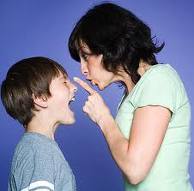Uncategorized
Parental Influences in Leadership Style and Ethics
We have leadership libraries with thousands of books. We have degrees and certificates on our walls as proofs of our intellectual education and training. We hold high positions in the organization where we are now. We are compensated well for our knowledge, skills, and abilities.

Nevertheless, the fact is, regardless of where we are in life now, our first lessons in leadership were learned from our parents. This fact may be comforting, if our parents were emotionally healthy and good role models. But this fact may be troubling, if our parents said and did things that disappointed or hurt us. In the latter case, we may have invested much of our lives to be different from, or to be better than, our parents. Sometimes success can be motivated in this way.
Lessons in Authority:
Parental Models
Children are by definition under the authority of their parents. Year in and year out, children are necessarily forced, due to their physical and emotional dependence, to follow their parents’ boundaries, commands, and guidance. Years of conditioning teach children both the nature and forms of authority, and the definitions of acceptable subordination.
Our parents were “in charge,” in the fullest sense. Their relationships with us, as our literal and figurative authority figures, were defined and shaped by their own parents and later life experiences.
Some of our parents were gentle and loving. They used great forethought in their uses of parental authority. They responded to us understanding we were children, yet with different treatment than they had. They were a step above their parental role models, and wanted us to be the same for our children.
Some of our parents were harsh, critical, and emotionally distant or abusive. They were so caught up on their own damage, they were unable to extract and separate themselves from it in relating to us. Some of them were highly successful, intelligent, even engaging in public. The gap between the public facade and the private person made a deep impression. If it works, do it.
Now that we are leaders ourselves, our lives are busy. We have our own families, children, grandchildren. Perhaps we rarely think of the first leaders in our lives, our parents; however, wherever we go or are, deep in the recesses of our personalities are traces–and sometimes powerful dynamics–of their modeling on the uses of authority, power, corrective discipline, and communication styles.
Lessons in Leadership and Subordination:
Childhood Conditioning
Children are physically and emotionally dependent on the care and goodwill of their parents for many years. From their earliest years, they have no choice but to be fed, clothed, and learn from the adults with whom they find themselves in this long-term, dependent relationship.
Both leadership and subordination methods and styles are shaped by those years.
Some children are fortunate enough to have parents who daily encourage, listen, respond appropriately, ask questions of clarification, and lay boundaries that are reasonable. Children shaped by such parents learn some of the most essential skills in healthy leaders and subordinates: trust, good will, listening, effective communication, teamwork.
Some children, sadly, are under the authority of persons who gave them life, yet whose lessons on authority and subordination are harmful. Dictatorial, uninterested and unaware of their charges’ needs, viewpoints, or fears, some parents suppress the healthy growth of good leadership skills in their children. Their children learn skills of self-preservation: how to cower, hide, be evasive, even manipulative. They are not easily prone to express their real emotions or positions. The foundations they learn as leaders and subordinates often follow in later years.
Applications in Our Leadership Styles and Methods
There is an old IT acronym: GIGO–“Garbage In, Garbage Out.” The German philosopher, Goethe, said, “Mann ist was man isst.” One becomes what one eats. Our parents had enormous impacts on how we see ourselves, others, the world–and how we are to relate to ourselves, others, and the world. This also applies to our adult roles as leaders.
If you learned encouragement to take initiative and explore, to “trust yourself,” you became a creative leader and follower. If you learned respect, you became a leader who treats others with respect by nature. If you learned how to be bullied, you learned bullying, or to be a subordinate who operates through fear. If you learned discipline aimed to guide, heal, and help, you became a leader with similar methods, or a follower who expects that treatment. If learned from people who barked and struck you, the same style and method may characterize your methods and style, as seen by your subordinates, peers, or supervisors.
What Can Be Done
Whatever age we are, we are adults. We think of ourselves as adults. We have been making adult decisions for a long time. There are thousands of indications in our lives we are adults. Our parents may be alive, or one is deceased, or both are gone. Yet there is a real sense in which we forever will be our parents’ children.
John D. Willis, PhD, President
Leadership Ethics Online
Leadership Ethics Online offers Certifications that help leaders discover these and other forces within themselves affecting their leadership values, methods, and effectiveness. These certifications have been developed after many years of research, workplace experiences, and personal growth in understanding. We hope you will use our Contact Form to explore how we can help you.